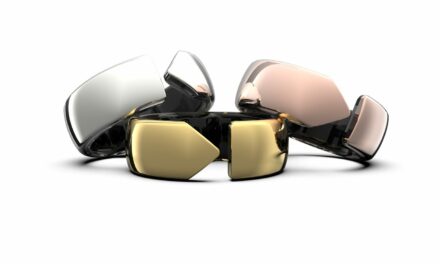At the 2024 South by Southwest Festival in Austin, Texas, Samsung led a panel discussion on the current state of sleep quality and the potential of artificial intelligence (AI) and technology in enhancing sleep.
Panelists included Hon Pak, MD, senior vice president and head of digital health team, MX Business at Samsung Electronics; sleep scientist Vanessa Hill, PhD; and John Lopos, CEO of the National Sleep Foundation. Moderated by Carolina Milanesi, president and principal analyst at Creative Strategies, the event took place just hours after Americans set their clocks forward one hour for daylight saving time, underscoring the relevance of the conversation to panelists and audience members alike.
Milanesi kicked off the panel discussion by highlighting that “sleep is one of the most crucial factors that can lead to overall well-being.” She also emphasized the importance of understanding the impact sleep has on our everyday lives, which served as the crux of the conversation that followed.
The panelists agreed on the importance of sleep, and while it’s the foundation of health that directly impacts everyday activities, dietary choices, and mental well-being, it often isn’t prioritized, with sleep quality worsening worldwide. However, experts are hopeful that AI-led technology and wearables—including smart rings and smart watches with advanced sensors—can help individuals build better sleep habits and create optimal sleep environments.
The panelists emphasized that when people are informed about their sleep, they are more empowered to make decisions that help achieve better sleep. Pak stressed how essential wearables are in encouraging users to develop better habits and make positive changes.Hill emphasized the importance of making sleep a priority in the same way people carve time out for workouts, nutritious meals, and annual checkups.
Better Sleep with AI and Wearable Technology
With AI influencing technology, the panelists unpacked just how new intelligent capabilities and insights can be available to more people so they can achieve sound sleep.
Pak stressed how mobile devices will become the primary access point for AI and how Samsung is striving to deliver personalized and actionable insights by incorporating and analyzing extensive information through the Samsung Health App. These insights are then transformed by AI to deliver tailored health experiences.
“Sleep is a subjective experience. However, there’s tremendous value in objective measurements—like the insights wearable devices provide,” said Lopos. “Sleep tracking is an expanding space, and the capabilities of AI take it to the next level. AI technology can enable personalized information to be shared with users and empower them to make small behavioral changes for the better.”
Pak added, “We’re focused on turning tracked data into intuitive and meaningful insights using AI, meaning consumers are met with more tailored experiences.” He noted that with more products and form factors, improved sensors, and advanced algorithms, technology can help individuals commit to a consistent sleep schedule and learn how to get a better night’s sleep.
Hill agreed that users will feel the benefits of AI on a tangible and personal level, particularly through upcoming Samsung Health features like My Vitality Score and the Booster Card, which combine richer data with more responsive analysis to make user guidance more personalized and actionable in their daily lives.
Samsung also will support a sleep apnea feature that will go beyond simple monitoring and analyze blood oxygen levels during sleep, detect signs of moderate to severe obstructive sleep apnea, and help users seek appropriate care.




